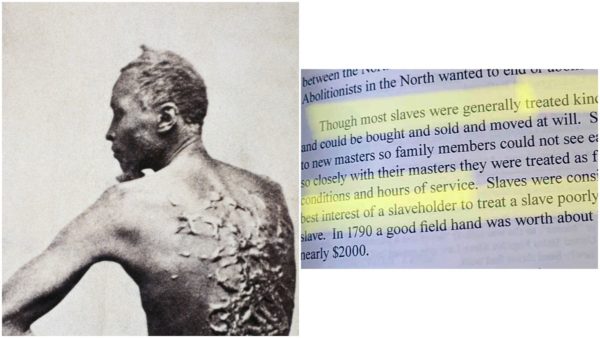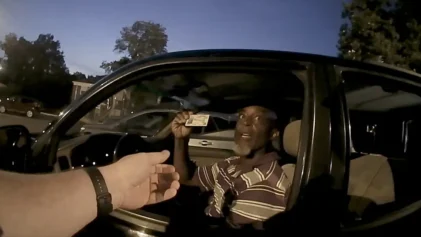A student center in Utah is under fire after reports claim it carried history assignment packets that allegedly stated, “most slaves were generally treated kindly” in the United States and had “reasonable living conditions and hours of service.”
In a statement, Northridge Learning Center, an accredited online resource “for non-traditional students seeking high school diploma course credits” in Utah, said it would no longer be distributing materials accused of falsifying the history of chattel slavery.
Moreover, they were planning on rewriting their chapter on the Civil War that triggered outrage from parents this week. The center — which is a subsidiary of a farming operation in northern Utah — received its accreditation through Cognia, an organization that accredits primary and secondary schools nationwide.

This week, parents became aware of the blunder and called out the center. Nancy McKendrick, who initially raised concerns, said her daughter was shocked by what she read and immediately brought it to her attention. The student was completing the packet this summer to make up for a U.S. history credit she missed at her Salt Lake City-area charter school this past school year during the ongoing pandemic.
“Many slaves worked so closely with their masters that they were treated as family,” one chapter stated. It added that “slaves were considered property, so it was not in the best interest of a slaveholder to treat a slave poorly.” And it suggests many had adequate housing, although it was noted in the packet that “human slavery is wrong and many cruel acts did take place.”
In a statement, center spokesperson Alison D. Bond said, “It is difficult to address a subject such as slavery, especially through an independent study packet versus classroom discussion.” However, she noted, “But we see how this section can be improved.”
An unidentified parent told the outlet that her Black son would have been “crushed” to read those statements. A similar sentiment was echoed by several individuals aware of the incident. Emma Houston, the special assistant to the vice president of equity, diversity, and inclusion at the University of Utah, called on the center to do a full-length review of their material to prevent a mistake like this from recurring.
“They were born into slavery and died in slavery. I am just beyond words that anyone would call that ‘kind,’” she told reporters. “This sounds like 1902 that they wrote this. Individuals who were enslaved were not treated with kindness. That’s a fact. They were stripped of their names and cultures and everything. It’s an issue of reporting history — not the history that we want it to be, but the actual history of how individuals were treated.”
Students can purchase the paper workbooks, which, if completed accurately and on time along with other requirements, could earn them credit for a failed course or as an alternative to taking the class in person at their school.


